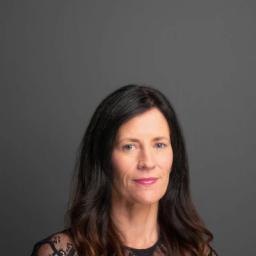Female mentoring in firms: an e-solution

By Kate McMahon
Kate McMahon and Tamlyn Edmonds examine e-mentoring for women in law
In the UK, in firms of all sizes, women are significantly underrepresented at partnership level. Over half of lawyers are female, yet only 35 per cent are partners and just 25 per cent of partners are equity partners (SRA Diversity Review 2021).
Meanwhile, studies show more gender balanced leadership creates businesses that are more financially successful diverse, collaborative and with higher staff retention (study by Credit Suisse of 2,000 companies worldwide; see also Women Matter 2: female leadership - a competitive edge for the future (2008) McKinsey & Company ).
However, post-covid 19, even these relatively low figures are dropping, on current indications. Current comprehensive studies show, in 2022, female leaders are switching jobs at the highest rates even seen combined with what is acknowledged as an unprecedented talent shortage in the legal market. Further, the commonly cited reasons for leaving are obstacles to path to promotion and compensation.
Starting solutions
These are all acknowledged problems which is why it is interesting to see solution-based products launching in the legal profession. We are co-founders and partners of private prosecution law firm Edmonds Marshall McMahon (EMM) and have formed Networking Nuance to assist women to succeed in networking and business development.
Having formed our own firm, we understand the requirement to learn to network and this is a skill that must be learned – sometimes very quickly.
In our case, there was a threefold imperative:
- Meet people and get them to take you seriously;
- Explain the possibilities and advantages of private prosecutions;
- Get an instruction in order to survive.
Networking necessity
There is nothing like having no job and no business to motivate someone. Many of the skills which we learnt along the way in terms of business development, we saw other women in our industry excelled in too. We noticed different women, with various networking styles, conducting interesting work and achieving great success. We therefore invited those inspiring women to be interviewed and filmed, with their invaluable advice forming part of our e-mentor programme.
There is a real need to help drive confidence in women when it comes to networking and seeking new business opportunities in law. Women often prioritise being an expert at their job to the detriment of prioritising business development. Making known the impact of not having a network for future promotion and career success is vital for women to be aware of.
Where it began – and why it matters
After years of offering internal business development training to the female lawyers at our firm and being asked to informally mentor other women in the city (often by male partners who care greatly about the success of their female lawyers), we decided we needed to try to fast track business development skills for female lawyers and make the advice easy and accessible.
The programme is unique in that it gathers together industry experts and an executive coach, with a programme designed to cover all of the issues which have troubled female networkers for years. It starts with the basics, namely detailing the reasons why networking is so important, and covers a variety of issues, such as building internal and international networks; how to phrase direct requests for work to potential clients and contacts; how to deal with tricky networking situations; the importance of marketing for your firm and origination credits; public speaking fear, how to find your way to a speaking slot; and what to do once you’ve got it.
Conclusion
Lack of female representation at the top is not just confined to law firms. As the recent FTSE board report from Cranfield University and EY has confirmed, of the 413 women on FTSE 100 boards, just 9 per cent are in executive positions. There is still a long way to go to ensure true gender parity at the top, but the aim of this programme is to propel women to senior positions quickly and effectively by giving them the right tools they need to build their network.
Kate McMahon and Tamlyn Edmonds are co-founders of Networking Nuance, an e-mentoring tool to coach women to rainmaking success within law firms. The Networking Nuance programme ‘It’s the who, not the do’ launched on 28 November 2022: networkingnuance.com

